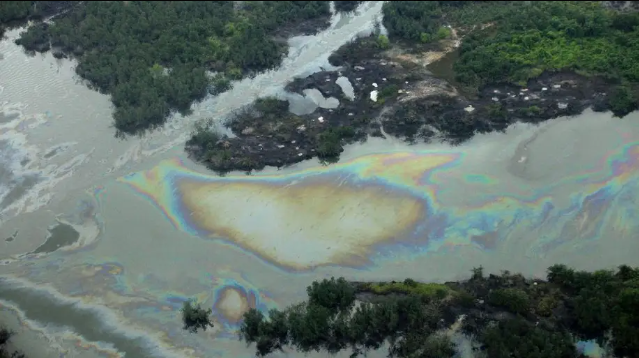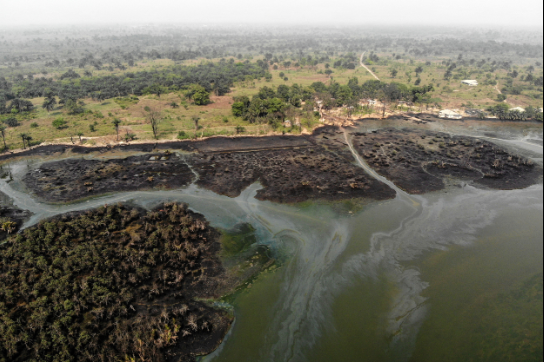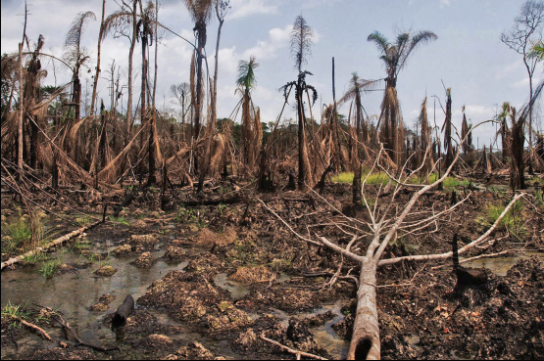Billions Lost, Communities Devastated Amidst Oil Revenue Mismanagement
LAGOS, Nigeria — Nigeria, Africa’s largest oil producer, has long been hailed for its vast petroleum reserves. Yet, beneath the surface lies a troubling narrative of misallocated revenues, environmental degradation, and communities left in despair.
Since the discovery of oil in the Niger Delta in the 1950s, Nigeria has generated substantial wealth from its petroleum industry. However, a significant portion of this wealth has been mismanaged. Reports indicate that between 1960 and 1999, approximately $400 billion in oil revenue was either stolen or squandered by public officials. This systemic corruption has deprived the nation of critical infrastructure and development opportunities.

In 2015, a government audit revealed that the Nigerian National Petroleum Corporation (NNPC) failed to remit about $16 billion in revenue owed to the state’s treasury. Such discrepancies highlight the ongoing challenges in ensuring transparency and accountability within the sector.
Environmental and Human Costs
The environmental impact of oil extraction has been catastrophic, particularly in the Niger Delta region. Frequent oil spills, gas flaring, and pipeline leaks have devastated local ecosystems. A 2021 United Nations satellite image exposed a failed cleanup site in the Niger Delta, left barren instead of restored. Leaked documents indicated that the Nigerian agency responsible for oil spill cleanups, Hyprep, was deemed a “total failure” by senior U.N. officials due to mismanagement and corruption.

Communities have borne the brunt of these environmental disasters. In 2004, an oil spill in the village of Goi, caused by a leak in a pipeline owned by Royal Dutch Shell, led to severe environmental damage, contaminating water and land, and forcing residents to abandon their homes. After years of legal battles, a Dutch court in 2021 held Shell’s Nigerian subsidiary liable for the spill, ordering compensation for the affected communities.
Voices from the Ground
Local activists have been at the forefront of advocating for environmental justice and equitable resource distribution. The Movement for the Survival of the Ogoni People (MOSOP), founded by the late Ken Saro-Wiwa, has long campaigned against the environmental degradation and marginalization of the Ogoni people. Despite their efforts, challenges persist.
“Our land has been destroyed, our waters polluted, and our livelihoods taken away,” says Godwin Bebe Okpabi, the king of Ogale, a community in the Niger Delta. “We demand accountability and restoration.”

In recent years, there have been attempts to reform the oil sector. The Petroleum Industry Act, enacted in 2021, aims to overhaul the regulatory framework and promote transparency. However, its implementation has faced hurdles, and skepticism remains about its potential impact.
Additionally, major oil companies like Shell and ExxonMobil have announced plans to divest from onshore operations in Nigeria, transferring assets to local firms. While this could empower domestic players, concerns linger about their capacity to manage operations responsibly and address existing environmental issues.
Nigeria’s oil wealth, once seen as a beacon of development and prosperity, has become a source of contention and hardship for many. Addressing the hidden costs of this wealth requires a concerted effort to combat corruption, enforce environmental regulations, and ensure that the benefits of natural resources reach all citizens.
For more in-depth coverage and updates on this story, stay tuned to ABS News.

